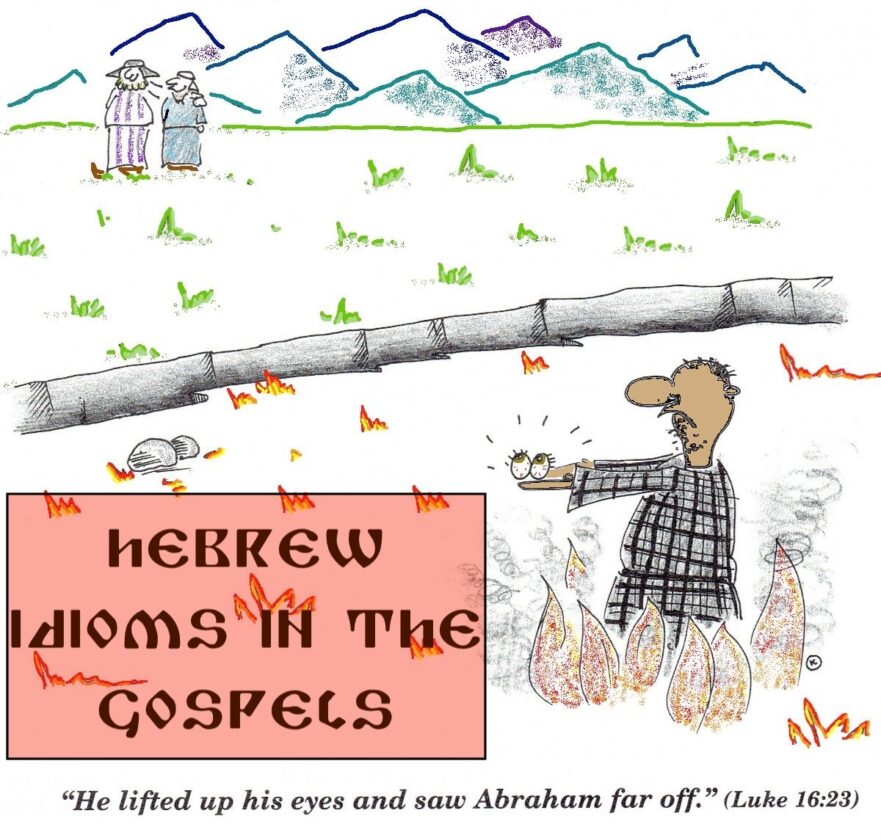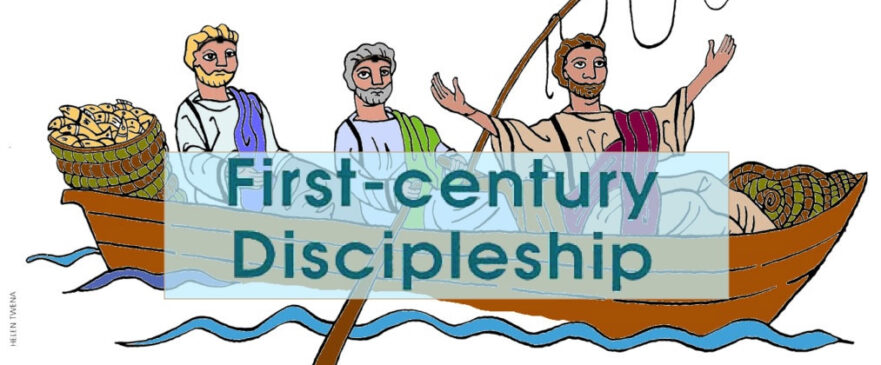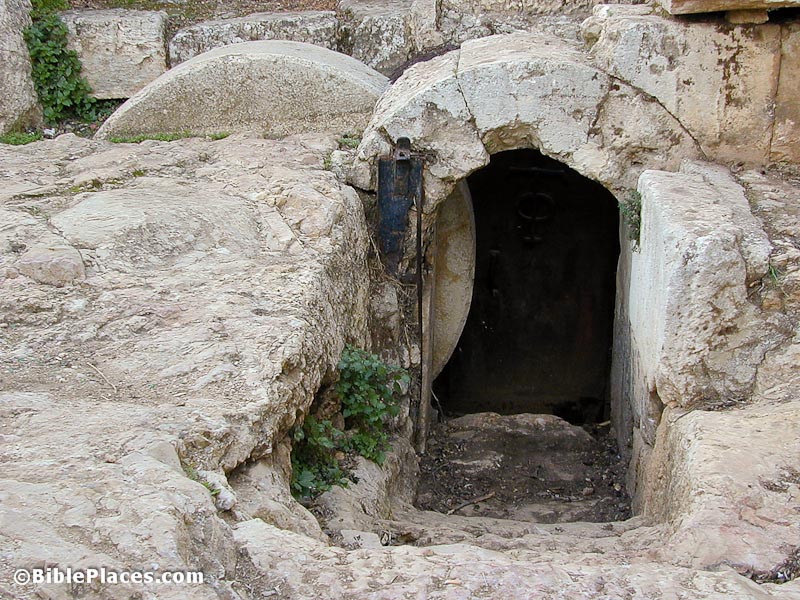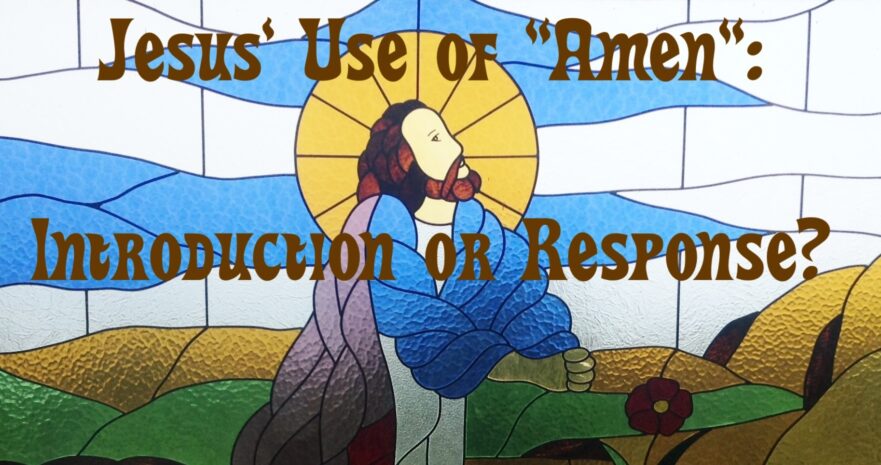Jewish sages were called upon constantly by their community to interpret scriptural commands. They “bound,” or prohibited, certain activities, and “loosed,” or allowed, others.
Hebrew Idioms in the Gospels

There are many expressions in the Greek texts of Matthew, Mark and Luke that seem to derive from Hebrew idioms. These are phrases that mean something different from the literal meaning of the words they use. Every language has its own idioms, many of which seem strange when translated literally out of their native setting.
By the Finger of God

Jesus’ ministry of miracles and deliverance occasionally brought him into conflict. One of the most intriguing controversies concerned the accusation by a group of Pharisees called “Jerusalem scribes” that Jesus had accomplished the healing of a dumb man with the aid of the prince of demons.
The Lord’s Prayer 10: A Hebrew Reconstruction

As a summary of Dr. Bradford Young’s series on the rabbinic background to the Lord’s Prayer, we present his English transliteration of the conjectured Hebrew original and its English translation.
The Lord’s Prayer 9: “Lead Us Not Into Temptation”

It is difficult to grasp the full impact of the Lord’s Prayer without an appreciation of its Jewish background. Today’s Christians have quite a different understanding of prayer, Scripture and faith than a Jewish teacher like Jesus. One easily can miss the great depth of Jesus’ message.
The Lord’s Prayer 8: “Forgive Us Our Debts”

Forgiveness is one of the main emphases in Jesus’ teaching. It is no wonder, then, that forgiveness is part of the short prayer that Jesus taught his disciples.
The Lord’s Prayer 6: “Thy Will Be Done”

We noted in a previous article that “Thy will be done” parallels “Thy Kingdom come.” Both phrases mean, “May you continue establishing your Kingship.” Jesus does not instruct his disciples to pray “if it is your will.” It is within God’s purpose that all men should repent and become a part of God’s reign. “May your will be accomplished” is a strong affirmative appeal.
The Lord’s Prayer 5: “Thy Kingdom Come” (Part 2)

Like Jesus, the rabbis made frequent reference to “the Kingdom of Heaven.” A familiarity with the way “Kingdom of Heaven” is used in rabbinic literature is essential for understanding its use in the Gospels.
First-century Discipleship

Like other sages of his time, Jesus demanded his disciples’ total commitment. They were to put the “kingdom of Heaven” (Jesus’ band of full-time disciples) before all else. They were to “hate,” that is, put second, father, mother, wife, children, brothers, sisters, and themselves, as well (Luke 14:26). Following Jesus to learn Torah from him was to take precedence over every other endeavor.
Gospel Translation

Hebrew words usually have many shades of meaning, and the Greek translator of the conjectured Hebrew “Life of Jesus” could convey only one sense of each Hebrew word’s meaning. When the standard Greek translation of a Hebrew word became fixed, Greek translators often employed this standard translation even when the Hebrew word it translated appeared with an obviously different meaning.
The Lord’s Prayer 4: “Thy Kingdom Come” (Part 1)

Probably no other aspect of Jesus’ teaching has been so greatly misunderstood as the Kingdom of Heaven. Certainly, few themes are more essential for understanding Jesus.
Mary and Martha: The Rest of the Story

In Robert L. Lindsey’s theory of gospel transmission, the Hebrew version of Jesus’ biography and its Greek translation have both been lost. Although none of the synoptic Gospels preserves the original text in its entirety, together they do preserve all, or nearly all, of the stories in the original work.
The Lord’s Prayer 1: Introduction

Too often, the importance of the Jewish background of the prayer and of the language that Jesus used has been overlooked or minimized.
Salted with Fire

Among the difficult sayings of Jesus, Mark 9:49 is one of the most enigmatic. Almost all previous explanations of this verse have dealt with the Greek text, but like many of the difficult sayings of Jesus, this one simply cannot be explained from the Greek alone.
How Long Was Jesus in the Tomb?

Jesus said he would remain in the grave until the third day after his death. If Jesus was buried on late Friday afternoon, how long would he have had to remain in the tomb to fulfill his prophecy about his resurrection?
Matthew 5:17: “Destroy” the Law

When a sage felt that a colleague had misinterpreted a passage of Scripture, he would say, “You are canceling (or, uprooting) the Torah!” In other words, “You are so misinterpreting Scripture that you are negating or canceling part of it.” Needless to say, in most cases, his colleague strongly disagreed. What was “canceling” the Torah for one teacher was “fulfilling” it for another.
The Syndicated Donkey

Randall Buth may have discovered a significant idiom in the Greek text of Luke. This idiom could help us in determining the original language of Jesus’ biography. In Luke 19:33, did the donkey that Jesus rode into Jerusalem on Palm Sunday have more that one owner as the Greek text states?
Jesus’ Use of “Amen”: Introduction or Response?

It is not surprising to find the word “amen” attributed to Jesus in the Gospels. What is unusual is to find “amen” used as the beginning of a statement rather than as a response.

